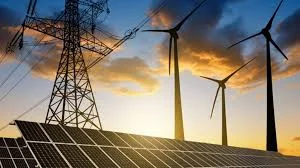 As Africa faces an escalating energy crisis, discussions are intensifying over whether renewable energy could be the solution. On March 10, 2022, energy experts, environmentalists, and policymakers gathered to explore the viability of renewable energy as a response to the region’s growing energy demands. With power shortages and access to electricity still a major issue across several African nations, the pressure to find sustainable alternatives has never been higher.
As Africa faces an escalating energy crisis, discussions are intensifying over whether renewable energy could be the solution. On March 10, 2022, energy experts, environmentalists, and policymakers gathered to explore the viability of renewable energy as a response to the region’s growing energy demands. With power shortages and access to electricity still a major issue across several African nations, the pressure to find sustainable alternatives has never been higher.
Africa’s energy crisis is primarily driven by a rapidly growing population, with over 600 million people lacking access to reliable electricity. Countries such as Nigeria, South Africa, and Ghana have been struggling with inconsistent power supplies, hampering economic development. The continent’s dependence on fossil fuels like coal, oil, and gas has also raised concerns about environmental sustainability, especially in the face of climate change.
In response to this, renewable energy—specifically solar, wind, and hydropower—has emerged as a potential game-changer. Experts argue that Africa’s natural resources present a unique opportunity to transition to greener energy. With abundant sunshine and strong wind corridors, several African countries are already beginning to invest in renewable infrastructure. Notably, South Africa’s Renewable Energy Independent Power Producer Procurement Program (REIPPPP) has attracted substantial investments, while Morocco has positioned itself as a leader with its Noor Solar Complex, the world’s largest solar farm.
However, the shift to renewable energy is not without challenges. Critics argue that while renewable energy is promising, it is not a quick fix. High upfront costs, inadequate grid infrastructure, and regulatory hurdles remain significant barriers to widespread adoption. Additionally, some contend that Africa’s immediate energy needs might still necessitate the use of fossil fuels in the short term to ensure stable energy supplies.
The debate over whether renewable energy is the definitive solution continues to unfold. Proponents believe that renewables offer the best long-term option for both energy security and environmental sustainability. They highlight projects such as the Lake Turkana Wind Power Project in Kenya, which is providing clean energy to millions, as a sign of what’s possible. On the other hand, detractors caution that a hybrid approach—where renewable energy is integrated alongside traditional energy sources—might be a more realistic path forward.
As African countries continue to explore their options, the answer to the continent’s energy crisis may ultimately lie in a combination of innovative policy reforms, investment in new technologies, and a commitment to balancing short-term needs with long-term sustainability.



















